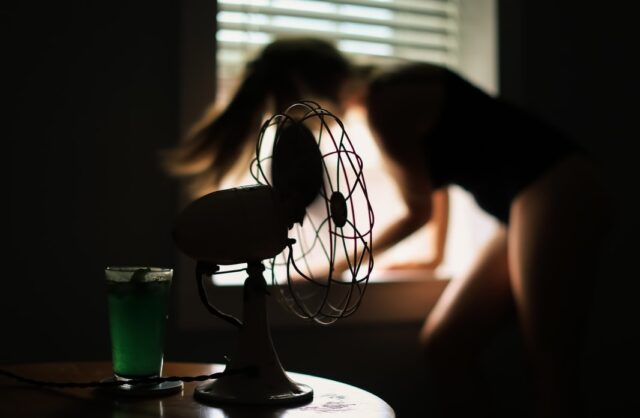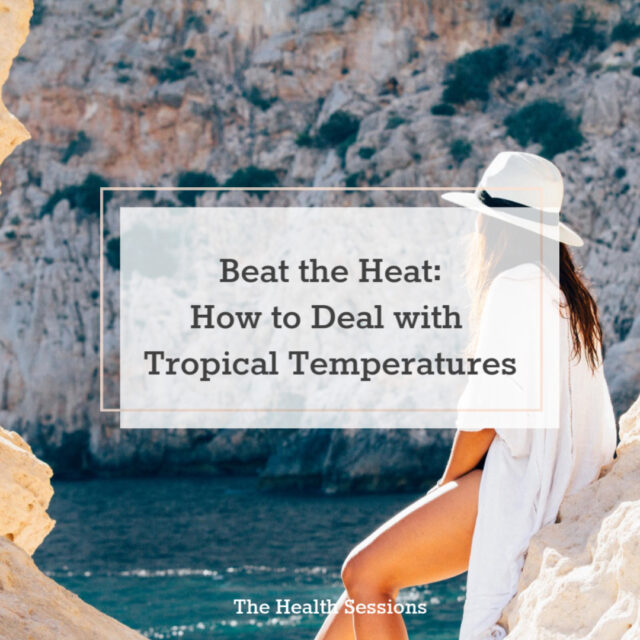How You Can Enjoy Safe Exercise at Home With Chronic Illness

Not everyone is excited when the weather station predicts tropical temperatures. Especially if you suffer from heat sensitivity or chronic health problems, you might struggle with the heat.
It’s not that you mind the extra sweat or sleepless hot nights. Many chronically ill people actually have trouble regulating their body temperature, breathing and heart rate. Common medications like antihistamines, blood pressures meds and antidepressants can also make you more sensitive to the sun and heat. What’s worse, your symptoms may aggravate from heat intolerance, causing more pain and even less energy to beat the heat.
But individuals with poor health aren’t the only ones who should protect themselves against tropical temperatures. When you spend hours in the burning sun or work out in high temperatures, your body could get overheated. Heat stroke is a dangerous medical condition in which your core body temperature reaches 40 C or 104 F, or higher. Left untreated, heat stroke can lead to serious complications and even death.
No matter if you’re healthy or chronically ill, what can you do to beat the heat?
This blog post contains some affiliate links to resources you may find helpful, at no extra cost to you. All opinions are my own.

Sounds like a no-brainer, but beating the heat starts by protecting yourself against the sun. To maintain a normal body temperature, it’s important to prevent sunburn. When you’re out in the sun, apply sunscreen every two hours and/or cover up with lightweight clothes made from natural fabrics. Alternatively, you could also consider UV-protective shirts, which actually help you stay cool despite the long sleeves. A floppy hat and sun glasses will finish off your summer look!
During the hottest times of day, retreat to the shade or create your own shelter from the sun. Also make sure you avoid heavy activities during peak hours to prevent heatstroke. Warning signs of heat stroke are flushed skin, a throbbing headache, feeling confused or dizzy, shallow breathing an a racing heart. If you notice these symptoms, seek immediate medical help.
Another familiar tune, but getting enough fluids in is (literally) vital, especially on hot days when you sweat more than usual. Up to 60% of your body consists of water, so when you don’t stay hydrated, many of your bodily functions will falter. That’s why you should drink plenty of (flavoured) water, veggie juices or naturally sweetened iced teas and lemonades.
As relaxing as sipping pįna coladas on your lounge bed sounds, sun and alcohol are a dangerous cocktail. Not only is alcohol dehydrating, it also affects your ability to sweat, which is your body’s way to cool itself down. So it’s best to swap your margarita for a festive mocktail when trying to beat the heat.
Besides drinking plenty of water, you can also stay hydrated by eating water-rich foods, like cucumber, lettuce, strawberries and watermelon.

A big challenge of a heatwave is keeping your home cool without air-conditioning. First off, ventilate your home during the cool early morning hours or late evening. Open windows on opposite sides of the house for the best result. Next, keep your windows, curtains and blinds (semi) closed during the rest of the day to keep unwanted heat outside.
Whats’ more, turn down the lights and do chores like laundry at night. Light bulbs, laundry machines and dish washers throw off heat, which is the last thing you’d want. Turning on the stove of oven to cook is also a big no-go. In that spirit…
Using the stove and oven off will make your house even hotter. Of course you can fire up the grill for an al fresco dinner. But if you’d rather stay indoors, turn to no-cook recipes for your meals. Caprese salads, heirloom tomato gazpacho and vegetable rice paper rolls don’t require any heat, and make the perfect light dinner on a hot summer’s eve.
And what better way to cool down than having a healthy popsicle or homemade (n)ice cream?

Feeling overheated? A quick way to cool off is splashing water on the body parts where your skin is thinnest: your wrists, behind your ears and under your knees. Obviously, a jump in the pool or taking a cooling shower also lower your body temperature. At home, putting your feet in a cooling foot bath can also help to get a good night’s sleep when it’s hot.
Another easy and affordable way to cool down, is to pop a filled water bottle in the freezer and place it at the foot of your bed. And it’s sounds strange, but some people swear by putting their sheets in the freezer just before bedtime to stay chill all night.
Need a cool breeze? Place a mixing bowl filled with ice in front of a large fan.
If you really struggle with heat sensitivity, you could also consider buying wearable cooling gear. Koldtec’s ice towels target the pulse points in your neck to help you body stay cool for longer
“You can’t change the ocean or the weather, no matter how hard you try, so it’s best to learn how to sail in all conditions.” – Jimmy Dean
Do you struggle with tropical temperatures? What’s your tried-and-tested tip to beat the heat?
If you enjoyed reading this article, you might also like: